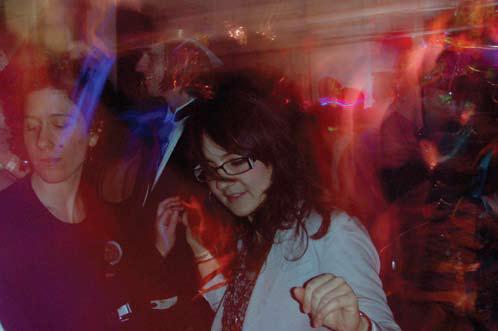Free to Party in Manchester?
Article published: Wednesday, March 17th 2010
Manchester’s music scene does not start and end at the doors of its bars and clubs. Beyond the bright lights of the city and a million miles away from the overly policed Warehouse Project and bland commercialism of Deansgate Locks exists a vibrant, authentic alternative.
 Unknown to many, Manchester and the Northwest in general have long been home to not-for-profit parties collectively organised by music lovers and makers themselves. Many take place in unusual spaces such as abandoned warehouses, cold war bunkers or out in the countryside. Unused or underappreciated spaces are converted through doses of inspiration, creativity and a do-it-yourself attitude into unusual, exciting and welcoming spaces.
Unknown to many, Manchester and the Northwest in general have long been home to not-for-profit parties collectively organised by music lovers and makers themselves. Many take place in unusual spaces such as abandoned warehouses, cold war bunkers or out in the countryside. Unused or underappreciated spaces are converted through doses of inspiration, creativity and a do-it-yourself attitude into unusual, exciting and welcoming spaces.
Most organisers restore venues to their original condition, or better, afterwards. Most parties feature electronic and dance music, while others have bands or visual artists performing live for the crowds. There have been “illegal” barn dances and film screenings in abandoned cinemas like the now demolished Cine City in Withington. Free parties are, most often, a far cry from the image of reckless criminality that the mainstream media and the police tend to paint around them.
Moral Panic
Free parties have had a bad reputation among the majority of the public since the 1980s and 90s. The words “rave” and “warehouse party” provoked moral panic as free parties came under concerted attack from sections of the media and much of the political establishment. The vibrant and positive DIY movement became a target of repression via media scaremongering, often violent police interventions and illegalisation through the Criminal Justice Act of 1994, which defined the music being played at these raves as, “sounds wholly or predominantly characterised by the emission of a succession of repetitive beats”. A clear public menace, the crackdown was fierce.
The real danger of free parties is that they threaten a status-quo in which only Tesco and JD Weatherspoon can sell cheap booze; people will only behave themselves under the intimidation of bouncers and £20 is a reasonable cost for a night of dancing. Free parties exist in large part as a response to the current music scene awash with unscrupulous clubs and promoters attempting to cash in on vibrant musical movements.
Many of the collectives which put on free parties regard them as part of a broader political movement; an element of social and political activism which includes squatting, demonstrations and other actions designed to reclaim spaces for public use. Many of those involved in organising free parties around Manchester were once involved in squatting and community organising in Hulme in the 1980s. Others have simply aimed for bigger events after organising fundraisers in support of political causes as diverse as anti-fascism, anti-G8 mobilisations and days of action in defence of autonomous spaces.
Problems
“Free parties tend to get a lot of stick in the media, but if you go with some friends and you’re sensible they’re usually safe and amazing events”, said one free party goer who wished to remain anonymous. Given the collective and autonomous nature of their organisation, problems can sometimes arise. However, these parties rely on everyone looking out for each other to create a space for all to enjoy. While, inevitably, the problems of the outside world can’t be completely excluded, the temporary autonomous spaces created during a free party are usually safer spaces than many town centres on a Friday night.
The dates and locations of free parties are, understandably, very closely guarded. You have to keep your ear to the ground and be prepared to leave your preconceived notions at the door if you want to get in. Ultimately, in the words of one collective’s manifesto:
“A free party is nothing like a clubnight that many people are used to… Don’t just attend, and expect to be entertained… We are not a members club that you can join, we will not do it for you, we want you step up, use your brain and DO IT YOURSELF!”
Ben Lear
Comments
-
Silly Billy!
What’s the first rule of fight club?!?
You shouldn’t have mentioned ‘them’, hope the editors of this site will have the sense to remove that reference.
Comment by Lulu on March 17, 2010 at 3:17 pm
The comments are closed.



